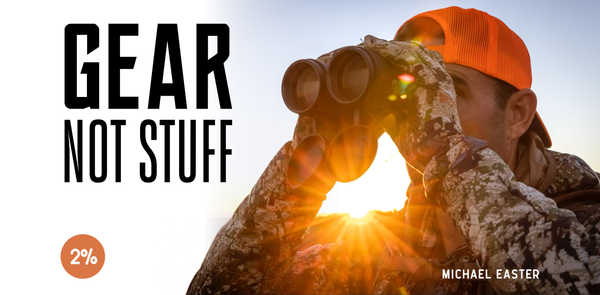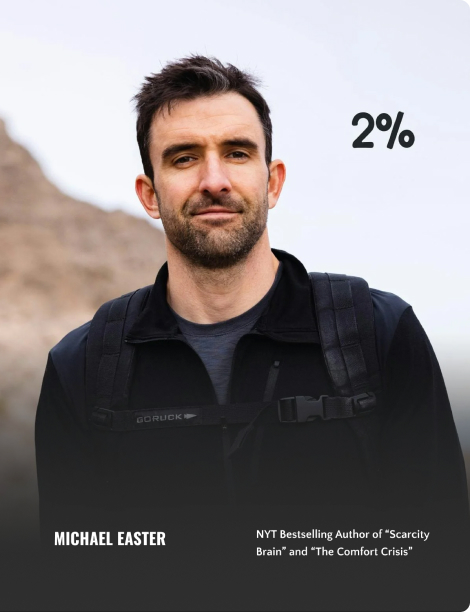How Authentic Are You? Take This Test
A test to see if you're living true to yourself.

Post Summary
- On Monday, we covered the benefits of living true to yourself and the four components of authenticity.
- Today we're revealing a test you can take to measure how authentic you are and how you fare in each of the four components.
- Once you have your individual results, we'll explain four ways to improve.
- The results: You can begin living true to yourself—which comes with a wide range of benefits.
Housekeeping
- Full access to this post is for Members of 2%. Become a Member below to get full access.
- Members have fun and don't die.
Podcast Preview
- Members, the full Member Podcast is at the bottom of the post.
- Here's the preview.
The Post
On Monday, we explored the life of Bill Walton—the man is a model for living true to yourself.
Living true to yourself—a quality researchers call "authenticity"—is critical for long-term well-being. People who score high in authenticity:
- Have better mental health.
- Are more satisfied with their life.
- Have better quality of relationships and stronger social networks.
- Are more likely to reach their big life goals.
- Are better at sales (highly authentic people have better sales conversion rates).
- Are more resilient and better able to cope with life's challenges.
- Have fewer regrets on their deathbeds.
So it pays, both literally and metaphorically, to be more authentic. But how do you know if you're actually living authentically?
You can sort of feel it. Perhaps living authentically is a fulfilling sense of being on the right path, accompanied by less stress. Conversely, living inauthentically is a kind of nagging sense of not doing what you really want accompanied by stress and frustration.
Most of us are somewhere in the middle of those two poles—we live authentically in some areas of life and less so in others.
But here's the thing: adjusting the nobs so you're living more authentically everywhere takes knowledge.
This is where a team of scientists from the UK and Duke enter the picture.
Know thyself
- Section summary: Authenticity has four components. People tend to be stronger in some components than others.
As we learned Monday, researchers in the UK and at Duke identified four qualities of living authentically. As a quick reminder, they are:
- Self-awareness: Knowing and trusting your strengths, weaknesses, desires, thoughts, and emotions and how they affect your behavior.
- Unbiased processing: Not denying, distorting, exaggerating, or ignoring your thoughts, emotions, and experiences. Accepting the full range of your experiences impartially.
- Behavior: Acting in ways that jive with what you learn from 1 and 2, rather than trying to please others, get rewards, or avoid punishment.
- Relational orientation: Making efforts to be open and truthful in your relationships. In essence, not editing yourself for other people.
The researchers note that most people are stronger in some areas than others.
For example, you might be supremely self-aware—you understand your strengths and weaknesses and how emotions like stress impact your decisions.
But if you act against all that self-knowledge and do things you hate to please others (meaning you're low in Behavior), then we have a mismatch.
Yet we'd also have a mismatch if, as another example, you never edit yourself for others (high in relational orientation) but think you're the greatest at everything and know it all (low in self-awareness).
Perhaps this is why Walt Whitman wrote that we "contain multitudes."
So the key to living authentically is figuring out which of the four areas you can improve in—to get all the multitudes in order.
We know the solution. But how do we get there?
The authenticity test
- Section summary: Take the following 45-question test, then practice the six research-backed tenets of authenticity.
To help people discover their strengths and weaknesses and align those multitudes, the researchers developed a test.







